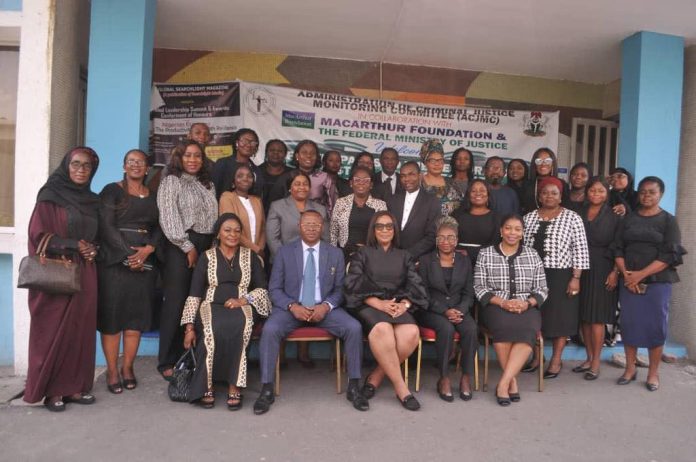The Honourable Attorney General of the Federation and Minister of Justice, Prince Lateef Olasunkanmi Fagbemi, SAN has tasked stakeholders in the judicial parlance on needs to embrace restorative justice.
While justifying his stance, the AGF noted that there is currently a paradigm shift to Restorative Justice all over the world, saying Retributive System in operation failed to a large extent to solve issues involved in criminal Justice especially in solving crime and those impacted by the crime.
Fagbemi represented Director Administration of Criminal Justice and Reforms, Mrs. Leticia Ayoola-Daniels,stated this while giving a remarks at a 2-Day Restorative Justice Policy Retreat in Lagos.\
According to the Minister, the event marked a pivotal milestone in the establishment of the Restorative Justice Programme in the Federal Capital Territory (FCT).
He said: ” You are all gathered to consider, review and validate foundational documents including a Bill, policy document, training manual, practice direction, and necessary forms. The purpose of these documents is to lay the foundation for the systematic integration of restorative justice principles within our criminal justice system”.
“This initiative is contextualized within the ongoing efforts of the Administration of Criminal Justice Monitoring Committee (ACJMC), FMoJ and various stakeholders, aimed at strengthening the criminal justice system in accordance with the provisions of the Administration of Criminal Justice Act (ACJA) 2015.
“The goal is to craft a more inclusive, responsive, and effective justice system in the Federal Capital Territory and to ensure that the Restorative Justice process is realized in the FCT.
” The establishment of the Restorative Justice Programme in the FCT symbolizes our commitment to cultivating a more humane, inclusive, and effective criminal justice system.
“Through dialogue, accountability, and community involvement, we aspire to construct a system that not only administers punishment but also facilitates healing and transformation, thereby fostering a safer and more just society for all. I eagerly anticipate our collective efforts in realizing this vision.
“This gathering is not just as a routine occurrence but an opportunity to collectively contribute to the sustainable development of our criminal Justice system. I maintain confidence in the capacity of this meeting to achieve significant strides, and I am steadfast in my commitment to providing the leadership required to realise the objectives set forth by the ACJA. It is on this note that I declare this retreat opened.
“Unwavering commitment of each participants demonstrated the objectives of our respective MDAs and parastatals, aligning seamlessly with the provisions of the Administration of Criminal Justice Act (ACJA) 2015.
” Indeed, the positive outcomes of these collective efforts resonate at both individual and organizational levels,” he said.
While commending the Lagos State Restorative Justice and the Lagos State Ministry of Justice for their invaluable support throughout the process, the collaboration he added has been instrumental in guiding towards aligning efforts with Lagos State’s restorative justice framework.
“Furthermore, I wish to recognize and appreciate the outstanding work and collective contributions of various stakeholders, including the FCT High Court, the Federal High Court, the National Human Rights Commission, the NCOS, the Shariah Court of Appeal, FCT Police Command, Force Headquarters, Ministry of Women Affairs, Legal Aid Council of Nigeria, FCT Alternative Dispute Centre, NULAI and the Abuja Multi Door Court House.
” Special appreciation goes to our development partner MacArthur Foundation for their continuous unwavering support to the Administration of Criminal Justice and to the ACJMC Programmes,” he added.
Also speaking, Coordinator, Restorative Justice Centre, Lagos State Ministry of Justice, Mrs Adenike Oluwafemi explained that Section 372 of ACJA law Lagos State as amended 2021 now gives power to judges to award commensurate compensations in criminal cases where victims have suffered loses or injuries as a result of an action of a defendant.
Aside referral institutions like the police, office of the Director of Public Prosecution and Magistrates, Oluwafemi stated further that there were also practise directions to assist the magistrate before whom most of the cases are prosecuted.
While dwelling on challenges militating against the initiative, she cited parties unwillingness to consider restorative justice, vindictiveness on the part of victims and meeting up with terms agreement among others.




